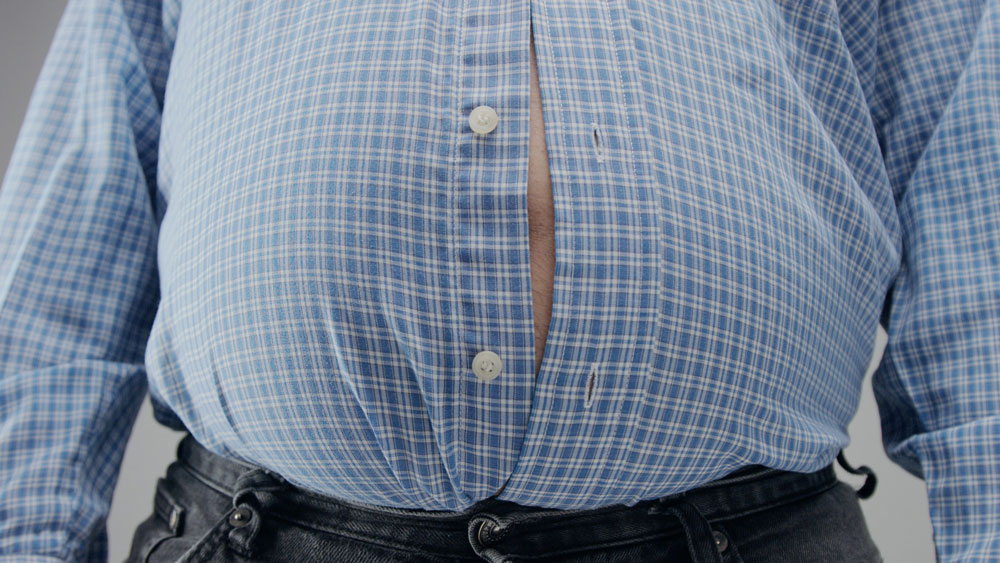
Trimming the Scale: Exploring Non-Surgical Weight Loss Solutions
In the pursuit of a healthier lifestyle, weight loss is a common goal for many individuals. While surgical procedures like bariatric surgery have been successful for some, they come with their risks and considerations. Fortunately, there are numerous non-surgical weight loss interventions available that offer effective and safer alternatives. These interventions encompass various approaches, ranging from lifestyle changes and dietary modifications to behavior therapy and medication. This article aims to explore and shed light on the diverse array of non-surgical weight loss interventions that can help individuals achieve their desired goals.
Table of Contents
Toggle
Effective Strategies for Non-surgical weight loss
Lifestyle Changes:
The foundation of any successful weight loss journey lies in making sustainable lifestyle changes. These include adopting a balanced and nutritious diet, increasing physical activity, and improving overall habits. Small but consistent modifications to one’s routine, such as reducing portion sizes, incorporating regular exercise, and prioritizing adequate sleep, can contribute to significant weight loss over time. Lifestyle changes not only promote weight loss but also enhance overall well-being.
Dietary Modifications:
Dietary modifications play a crucial role in weight management. Interventions such as calorie restriction, portion control, and mindful eating can have a positive impact on weight loss. Various diets have gained popularity, including the Mediterranean diet, low-carbohydrate diets, and intermittent fasting. Consulting a registered dietitian or nutritionist can provide personalized guidance on selecting a suitable dietary approach and ensuring adequate nutrition while achieving weight loss goals.
Behavioral Therapy:
Behavioral therapy focuses on identifying and modifying unhealthy habits and patterns that contribute to weight gain. Techniques such as cognitive-behavioral therapy (CBT) help individuals address emotional eating, develop coping mechanisms, and cultivate healthier attitudes toward food. It also aims to enhance self-monitoring, goal-setting, and problem-solving skills. Behavioral therapy can be delivered individually or as part of group sessions, and it provides valuable tools to sustain long-term weight loss.
Physical Activity:
Regular physical activity is instrumental in weight loss and maintenance. Engaging in both aerobic exercises (such as brisk walking, cycling, or swimming) and strength training can boost metabolism, burn calories, and build lean muscle mass. Finding enjoyable activities and incorporating them into daily routines increases the likelihood of adherence. Working with a certified fitness professional can ensure a safe and effective exercise program tailored to individual needs and goals.
Medication:
For individuals who struggle with obesity or have comorbidities, weight loss medications may be prescribed under medical supervision. These medications can help suppress appetite, reduce food cravings, or inhibit fat absorption. However, it is important to note that medication alone is not a solution, and it should always be used in conjunction with lifestyle changes. Consultation with a healthcare provider is crucial to assess eligibility, potential side effects, and long-term safety.
Support Networks:
Establishing a support system can significantly contribute to successful weight loss. Support networks can consist of friends, family, or organized groups such as weight loss programs or online communities. These networks provide encouragement, accountability, and a sense of community, which can be instrumental during challenging times. Sharing experiences, exchanging tips, and celebrating milestones can foster motivation and reinforce positive behavior changes.
Non-Surg Fat Removal Techniques
There are several non-surgical techniques available for fat removal. However, advancements and new techniques may occur continuously. Here are some popular non-surgical fat removal techniques that were widely used:
- Cryolipolysis (CoolSculpting): This procedure involves freezing fat cells, which causes them to die and be gradually eliminated by the body over time. It is commonly used to target areas like the abdomen, thighs, and love handles.
- Low-Level Laser Therapy (LLLT): Also known as laser lipolysis or cold laser therapy, LLLT uses low-level laser energy to disrupt the fat cells and stimulate the release of stored fatty acids. The body then naturally eliminates these fatty acids.
- Radiofrequency (RF) Treatments: RF treatments use radiofrequency energy to heat and destroy fat cells. The procedure typically involves heating the targeted area, which causes the fat cells to shrink and be eliminated by the body’s natural processes.
- Injectable Treatments: Certain injectable treatments, such as Kybella, are used for reducing submental fat (double chin). Kybella contains a synthetic form of deoxycholic acid, which helps break down and absorb fat cells.
- High-Intensity Focused Ultrasound (HIFU): HIFU uses focused ultrasound energy to heat and destroy fat cells. It is commonly used to target specific areas like the abdomen, thighs, and arms.
It’s important to note that the effectiveness of these non-surgical techniques may vary depending on factors such as the individual’s body composition, the targeted area, and the skill of the practitioner. Consulting with a qualified healthcare professional or aesthetic specialist is advisable to determine the most suitable option for your specific needs and goals.
Weight Loss Tips
Losing weight without exercise can be challenging, as physical activity plays a crucial role in burning calories and improving overall health. However, it is possible to make some lifestyle changes and adopt healthy habits that can help you lose weight without relying solely on exercise or surgical treatments. Here are some tips:
- Watch your diet: Focus on consuming a balanced, nutritious diet that is low in calories. Incorporate plenty of fruits, vegetables, whole grains, lean proteins, and healthy fats. Avoid or limit your intake of sugary foods, processed snacks, and high-calorie beverages.
- Portion control: Be mindful of your portion sizes. Use smaller plates and bowls to help control your food intake. This can prevent overeating and promote weight loss.
- Drink plenty of water: Water helps to keep you hydrated and can also make you feel fuller, reducing the likelihood of overeating. Aim to drink at least 8 glasses of water per day.
- Reduce calorie-dense foods: Cut back on foods that are high in calories but low in nutritional value, such as fried foods, sugary treats, and fast food. Instead, opt for healthier, nutrient-dense options.
- Limit liquid calories: Beverages like soda, juice, and alcohol can contribute a significant number of calories to your daily intake. Try to replace these with healthier options like water, herbal tea, or unsweetened drinks.
- Eat mindfully: Pay attention to your eating habits and listen to your body’s hunger and fullness cues. Avoid distractions while eating, such as watching TV or using electronic devices, as this can lead to overeating.
- Get enough sleep: Lack of sleep can disrupt your metabolism and increase cravings for unhealthy foods. Aim for 7-9 hours of quality sleep each night to support your weight loss efforts.
- Manage stress: Chronic stress can contribute to weight gain. Find healthy ways to manage stress, such as practicing mindfulness, engaging in hobbies, or spending time with loved ones.
- Monitor your progress: Keep track of your food intake and monitor your progress regularly. This can help you identify patterns, adjust, and stay motivated.
Remember, while these tips can aid in weight loss, incorporating exercise into your routine is highly beneficial for your overall health and well-being. Consult with a healthcare professional or a registered dietitian for personalized advice and guidance.
Conclusion:
Weight loss is a personal and multifaceted journey that requires dedication, perseverance, and a holistic approach. Non-surgical weight loss interventions offer viable options for those seeking healthier lifestyles without undergoing invasive procedures. By implementing sustainable lifestyle changes, making dietary modifications, incorporating behavioral therapy, engaging in regular physical activity, considering medication under medical guidance, and seeking support, individuals can achieve meaningful and lasting weight loss. Remember, it is important to consult healthcare professionals to tailor interventions to individual needs and ensure safety throughout the process.


